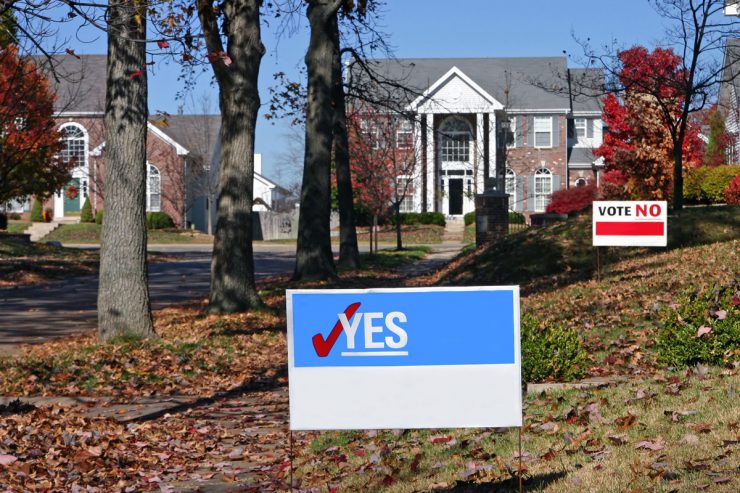One full year into the COVID-19 pandemic and people have really started to appreciate (or abhor) their neighbors. The extra time at home or stuck in one’s condominium unit has caused an increased sense of awareness and, in some cases, aggravation regarding the comings and goings and habits of our neighbors. Many community associations, and especially condominiums, throughout the state have attempted to avoid becoming the next COVID-19 “hot spot” by temporarily closing community amenities and facilities to owners and guests to avoid unnecessary exposure (and the litigation guaranteed to follow) of residents to the virus. Today, as federal, local, and state governments continue to remain cautious to prevent the spread of COVID-19, the availability of vaccines coupled with the general anxiety of cabin fever has caused many community association boards to reconsider decisions to temporarily close common facilities like clubhouses, gyms, and pools.
While most association boards are anxious to reopen the community’s amenities to owners and their guests, community association boards should carefully balance the benefit of reopening facilities with the associated and increased costs and risks of doing so. Even the most cautious and cost-savvy boards would not have had the foresight to plan financially in advance for increased costs and expenses associated with heightened cleaning and sanitizing costs, supplying employees and staff with personal protective equipment, and enforcement against violators who fail to comply with the association’s COVID-19 related rules and regulations. Below are some tips to help boards manage COVID-19 related costs in the short and long term.
- To the extent authorized by the association’s governing documents and Florida law, increased maintenance and cleaning expenses should be passed on to individual members using common facilities who fail to comply with applicable rules and regulations.
Most community association boards are generally and specifically authorized by the declaration, articles of incorporation, and/or bylaws to make and adopt rules and regulations governing the use of the community-owned property and facilities. Additionally, both the Condominium and Homeowners Association Acts authorize associations to adopt reasonable rules and regulations pertaining to the use of common areas and facilities. (See Section 718.123(1), F.S. (Condominium Act) and Section 720.304(1), F.S). If your association has not already done so, the board should consider passing a resolution adopting new rules or amending current rules which impose on owners increased responsibility while using the common facilities and specifically restrict the use of common facilities by owners and residents who are sick or may have been exposed to the virus. Such rules should also require owners using the facilities to do so with increased care and to ensure that they use appropriate sanitizing and social distancing measures after each use. For example, there should be a rule requiring individuals using gym equipment to clean and sanitize the equipment after each use. A failure to comply with such rules (i.e., using equipment while sick) would be considered “negligence” on the part of the violator and may require the association to hire a specialty cleaning crew or equipment to sanitize the area after that individual’s use. In which case, the association’s rules and regulations should entitle the association to impose upon the owner the increased costs or expenses associated with the increased cleaning as a result of their negligent behavior. For some homeowners associations, the declaration may allow the board to levy an “individual assessment” against the owner for these increased costs. Condominium associations may also be authorized by their governing documents to “charge” (not assess) the owner for increased costs due to owner negligence, however, such a charge may not be secured by a lien against the unit. Also note that Section 718.111(4), Florida Statutes, prohibits a condominium association from charging a “use fee” against an owner unless authorized by the declaration or by a majority vote of the association, unless the charges relate to expenses incurred by the owner having exclusive use of the common elements. The most common example of this is if an association has to hire a cleaning service after a clubhouse is used. Rosso v. Golden Surf Towers Condo. Ass’n, Inc. 651 So. 2d 787 (Fla. 4th DCA 1995)
- Levy fines for non-compliance and earmark fines collected for COVID-19 prevention related measures.
Once the association has adopted its COVID-19 related rules and regulations, the board should not be shy in enforcing them against violators. Pursuant to Section 718.303(3), Florida Statutes (Condominium Act) and Section 720.305(2), Florida Statutes (Homeowners Association Act), boards have the authority to levy fines against any member or any member’s tenant, guest, or invitee for failure to comply with the governing documents and reasonable rules of the association (after a duly noticed board meeting and 14 days’ notice and opportunity for hearing before an impartial fining committee). Unlike assessments, the collection and use of which is anticipated and restricted by the association’s governing documents and annual budget, the collection of fines for non-compliance are additional funds available to the association which can be used as necessary to supplement the association’s operational costs. The association should consider earmarking non-compliance fines to help fund the increased costs and expenses related to COVID-19 prevention in the community.
- Plan ahead. Consider including a line item in the association’s annual operating budget to account for increased COVID-19 costs.
Hindsight is 20/20, but unfortunately, the COVID-19 forecast is not. What is certain is that all associations will undoubtedly have to plan for and guard against the threat of COVID-19 exposure on the association property for the foreseeable future. As such, the association’s board should assess actual expenses and costs incurred during the past year and incorporate and plan for the same in the association’s operational budget going forward.
- Consider opening only those common facilities and amenities for which the association has developed an enforceable plan of action.
There is no one-size-fits-all COVID-19 plan, and any prevention methods and measures adopted by the board should consider the unique circumstances (including facilities available, number of residents, etc.) which face the particular association. There is also no requirement that the association open (or close) all common facilities and amenities at the same time. For example, while the association may be prepared to reopen the gym, provided that residents are required to bring their own towel and sanitizing spray, the association may keep the pool and pool deck temporarily closed while the association identifies a preferred vendor for specialized cleaning as necessary. Taking a phased re-opening approach allows the association’s members access to some facilities while giving the board time to deliberately consider and plan for how to safely and cost-effectively re-open other facilities which may require more association attention and resources.
- Ask for in-kind donations and contributions from owners and residents.
Since the frantic first days of the pandemic, the hoarding of gloves, masks, and other personal protective equipment has resulted in personal stockpiles of these items large enough to supply a doctor’s office. Additionally, mask-making has turned into a national past time and has spurred countless and selfless donation campaigns across the country. To help fulfill the association’s need for items (and to prevent unnecessary and costly purchases), the association may consider hosting a mask, glove, and/or cleaning equipment drive during which residents are encouraged to donate extra unused items to be used by the association to stock the common areas and facilities. Such efforts demonstrate the association’s understanding for member’s concerns and their desire to take advantage of community facilities and also fosters a sense of ownership among residents to remind them that that preventing the spread of COVID-19 is not just a board obligation but a community-wide responsibility.

Shayla J. Mount
Attorney at Law, Becker
Orlando | bio

















